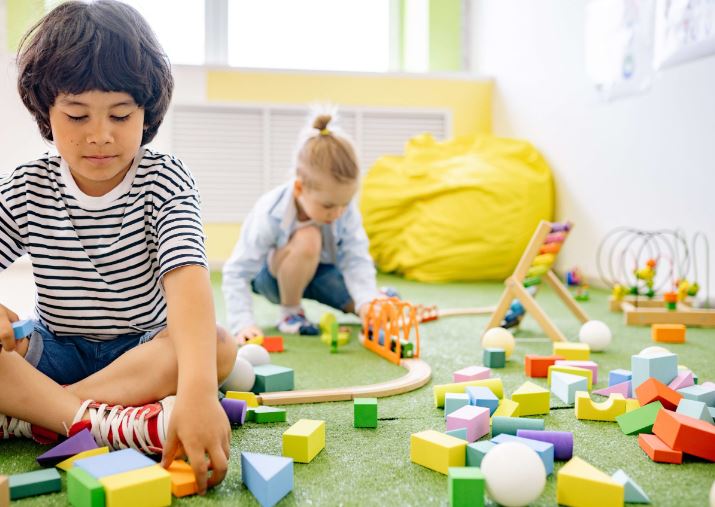In the dynamic realm of education, the Montessori approach has long been revered for its child-centric philosophy that extends beyond the traditional classroom setting. As we navigate the ever-evolving landscape of learning, the integration of Montessori principles into home education has become a paramount consideration for parents and educators alike. In this article, we explore the transformative impact of educational games and puzzles in extending Montessori learning beyond the classroom and showcase a curated selection available at Montessori Australia.
I. The Essence of Montessori Beyond the Classroom:
-
Holistic Learning Approach: Montessori education emphasizes holistic development, encompassing not only academic prowess but also social, emotional, and practical life skills. Extending Montessori principles into the home environment ensures a seamless continuation of this comprehensive approach to education.

-
Child-Centric Learning: At the core of Montessori education is the belief in a child's innate curiosity and ability to learn through self-directed exploration. Bringing Montessori beyond the classroom involves fostering an environment where children can take charge of their learning journey.

-
Individualized Learning Paths: Montessori principles celebrate the diversity of learning styles and pace. Adapting these principles at home allows for the customization of learning paths, ensuring each child receives education tailored to their unique needs and interests.

II. Educational Games and Puzzles: Catalysts for Montessori Home Learning:
-
Hands-On Learning: Educational games and puzzles provide a hands-on approach to learning, aligning seamlessly with Montessori principles. The tactile nature of these activities engages children actively, fostering a deeper understanding of concepts.

-
Promoting Independence: Montessori education places a significant emphasis on fostering independence in children. Educational games and puzzles, carefully selected and designed, encourage self-directed learning, empowering children to explore and solve problems on their own.

-
Encouraging Critical Thinking: Montessori home learning thrives on the development of critical thinking skills. Educational games and puzzles stimulate cognitive processes, requiring children to analyze, strategize, and problem-solve – skills that are fundamental to a Montessori education.

-
Cultivating Concentration: The ability to concentrate is a cornerstone of Montessori learning. Educational games and puzzles capture a child's attention, encouraging sustained focus and concentration, which are essential elements in the development of academic and life skills.

III. Montessori Australia's Curated Selection:
Montessori Australia stands as a beacon for quality Montessori education resources, and their curated selection of educational games and puzzles reflects their commitment to extending Montessori principles into the home learning environment.
-
Math and Number Games: Explore Montessori Australia's range of math and number games that make learning arithmetic a joyful experience. From counting beads to interactive number boards, these games not only reinforce mathematical concepts but also nurture a love for numbers.

-
Language Development Puzzles: Language development is a crucial aspect of Montessori education. The store offers language development puzzles that enhance vocabulary, grammar, and phonetic awareness in an engaging and interactive manner.

-
Geography and Culture Puzzles: Montessori education places a strong emphasis on global awareness. Explore the geography and culture puzzles available at Montessori Australia, allowing children to explore the world's continents, countries, and diverse cultures.

-
Science Exploration Games: Foster a love for science with Montessori Australia's science exploration games. From anatomy puzzles to interactive weather charts, these games stimulate curiosity and encourage hands-on learning in the realm of science.

IV. Incorporating Montessori Principles at Home:
-
Designing a Montessori-Inspired Learning Space: Create a designated learning space at home that mirrors the principles of a Montessori classroom. Incorporate open shelves, display educational materials, and maintain an organized environment to promote self-directed learning.

-
Encouraging Practical Life Skills: Extend Montessori principles into daily activities by incorporating practical life skills. Involve children in everyday tasks such as cooking, cleaning, and gardening to foster independence and responsibility.

-
Flexible Schedules and Routines: Montessori home learning thrives on flexibility. Establish routines that allow for a balance between structured learning time and free play, respecting a child's need for exploration and downtime.

Conclusion:
In conclusion, the integration of Montessori principles beyond the classroom is a transformative journey that lays the foundation for a lifelong love of learning. Educational games and puzzles play a pivotal role in this journey, offering a hands-on, engaging, and child-centric approach to education. Explore the curated selection of educational games and puzzles at Montessori Australia to embark on a home learning experience that encapsulates the essence of Montessori education, nurturing not just academic skills but the holistic development of your child.

